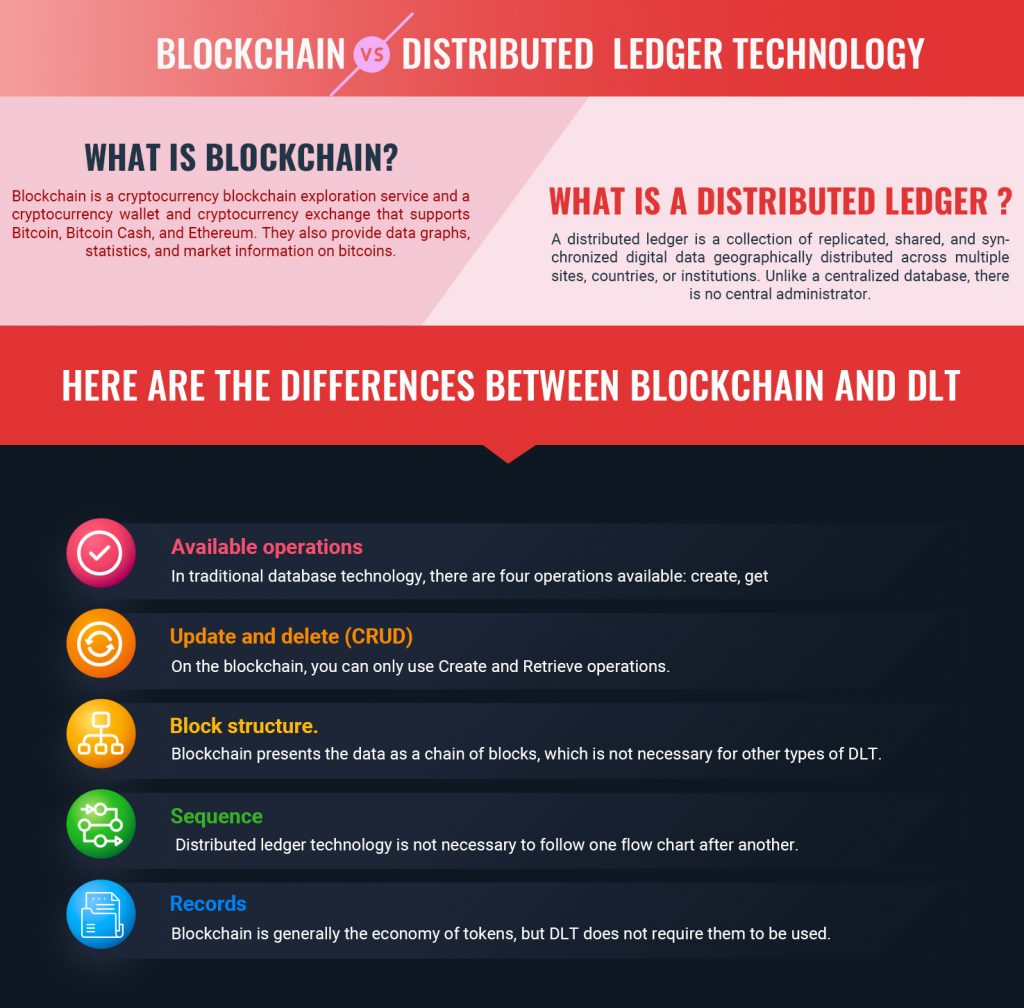After the 2008 global financial crisis led by some major banks like Bear Stearns, Citibank, and Lehman Brothers, which led to thousands of people losing their entire life savings. With millions losing their savings and jobs, people started losing faith in these big centralized institutions. Which led to the rise of new technologies like blockchain and cryptocurrency. So, why Is It Important That Blockchain Have A Distributed Ledger?
With the rise of Bitcoin, other cryptocurrencies, and the latest concept of NFT (Non-fungible Tokens), everyone’s focus has turned onto the blockchain. Distributed ledger technology is the underlying concept that powers these various cryptocurrencies. In this article, we will discuss the basics of Blockchain and Distributed Ledger Technology (DLT). This will give a better understanding and relation between the two concepts. The main focus is to list out the benefits and use cases of DLT with Blockchain.
What is a Distributed Ledger?

It is often misconceived that distributed ledger technology (DLT) and blockchain technology are the same things. Although the underlying concept of decentralization may be similar, the meaning is different. Let’s try to understand a distributed ledger with an example. Imagine a database, which is shared across many nodes (individuals or institutions) which contain the records of transactions called a ledger. We can record, access, and manage these details at many locations. Thus there is no centralized data storage node in the network. These nodes present in this distributed ledger have the responsibility to verify each transaction. They maintain a record of each item, thus creating a consensus on each item.
We can use these distributed ledgers to record and store different types of data. We can store various types of transactional information such as dynamic, static, and registry data. Distributed Ledger is timestamped and given a unique cryptographic signature which helps in tracking that specific data block. These cryptographic signatures can be used to verify the blocks and prior transactions made with this block.
Understanding Blockchain Technology.
Blockchain technology is one form of a distributed ledger technology. Blockchain is a distributed immutable ledger to record and process transactions. We can use blockchain to transfer various types of assets and maintain ownership transfer records. Blockchain ensures privacy, security, trust, and transparency for all kinds of transactions with different digital assets.
Blockchain bundles these transactions into chained blocks and broadcasts them to all the nodes in that network. To help this, blockchain uses a cryptographic signature called a hash. We can look at blockchain as a database that is being shared with records that must be validated and encrypted. We can understand this by an example of a secure google document. Where each document’s entry is dependent on its relationship with the previous ones.
Differences between Blockchain and Distributed Ledger.

The main difference between these two is, blockchain is a type of distributed ledger. Blockchain, as the name suggests is a sequence of blocks while there is no such rule to have a chain when it comes to distributed ledgers. Removing the intermediary person from the process is what makes this concept of blockchain unique. But unlike blockchain, DLT may not have data in blocks. So, we can say that all blockchain are DLTs while all DLTs are not blockchain.
Importance of Blockchain with Distributed Ledger.
When we store data on a distributed ledger then it offers complete transparency to all the users. Transparency amongst the users builds more trust in the institution/network. When we write and add the data to the blockchain, it gets added to the network chain. When there are several transactions over a long period, then we can see a constant audit trail of blocks and their hash functions. This is very essential for financial institutions as the verification and audit process becomes very easy. , this will lead to fewer errors or frauds in a business.
DLT technology can help in speeding up the processing of transactions. It eliminates the need for a central authority or an intermediary. Big businesses can save millions by reducing the time of transaction and lowering the remittance costs. This can improve the access to financial systems for the unbanked population.
Apart from faster processing, the fees for transactions are less. This makes distributed ledgers useful for all kinds of financial transactions on an industrial scale. The immutable nature of the distributor ledger provides greater security. Thus, We can use a blockchain network to store the transactional records data.
Distributed ledger technology with blockchain can revolutionize various sectors, governments, and institutional workflow. Thousands of leading global companies and financial firms have joined decentralized blockchain networks. In the last 5 years. We can use a decentralized blockchain-based for tax collection, license registrations, voting. Blockchain technology is already making huge changes in the sector of finance, supply chain, digital artwork, digital assets.
Blockchain also guarantees protection against money laundering. This is because Distributed Ledger Technology (DLT) uses encryption. Decentralized applications will replace all manual and inefficient processes in the field of finance, loans, supply chain & commodities, etc.
Conclusion.
Thus, We may conclude that Blockchain may be regarded as a specific type of distributive ledger. Blockchain can use DLT to record, confirm and process the transactions to bring more security, transparency, and efficiency to the network. This affects the institutions and nodes on the blockchain and helps them gain more trust and efficiency. These two technologies are not the same but still, the concept of distributed ledger is important for blockchain technology. While decentralized technology has many advantages, it’s in the very initial stage. In the future, we will see the decentralization of old ledgers and available to everyone over the network.
SoluLab is one of the top 3 blockchain developers in the world. Reach out to us today for your project’s free consultation.




